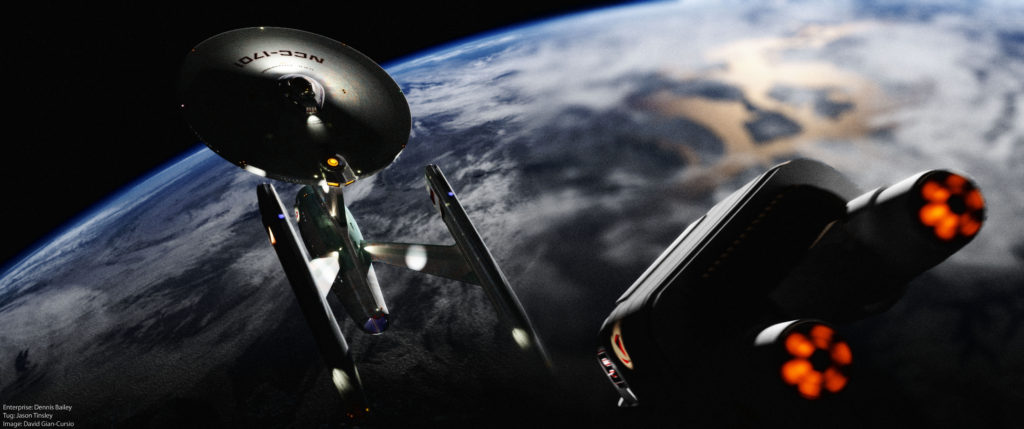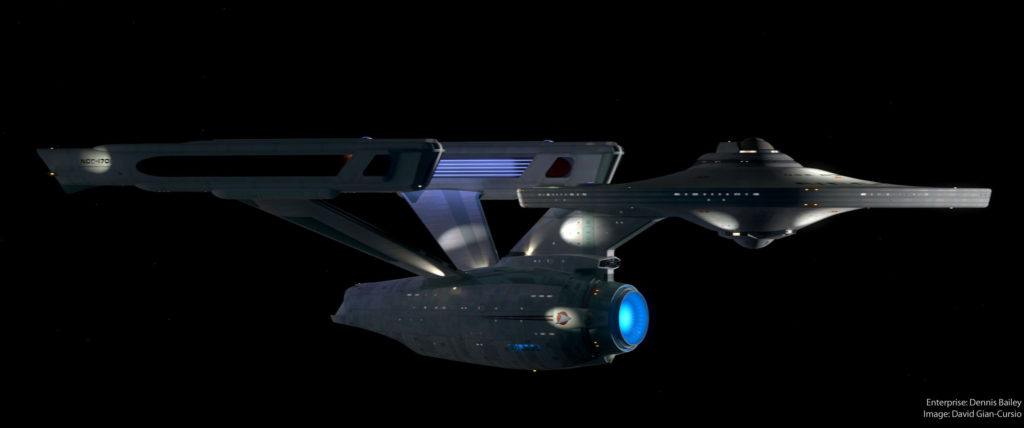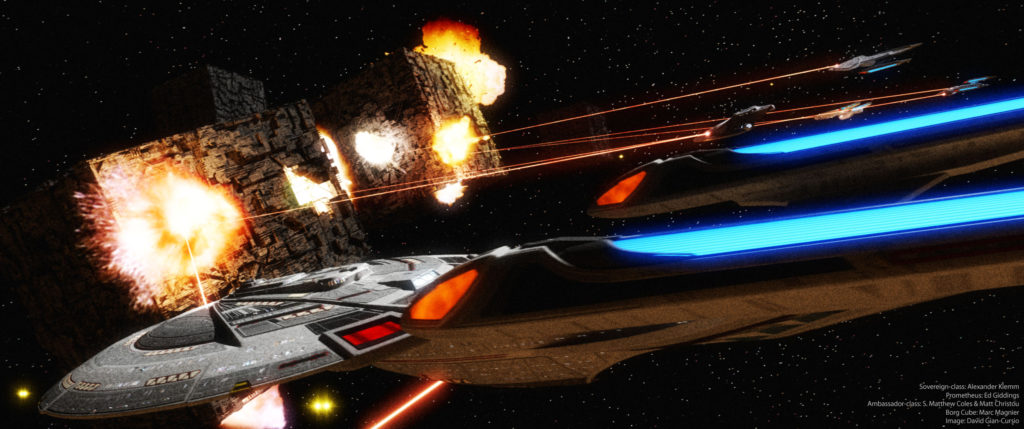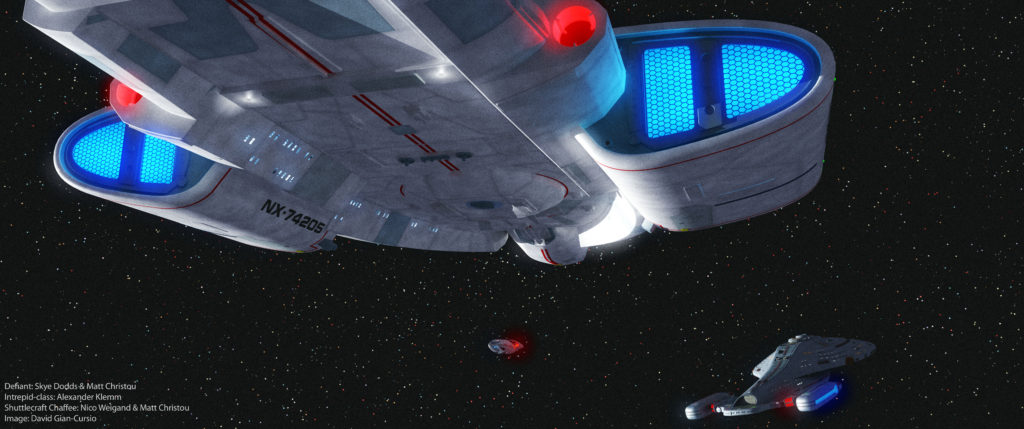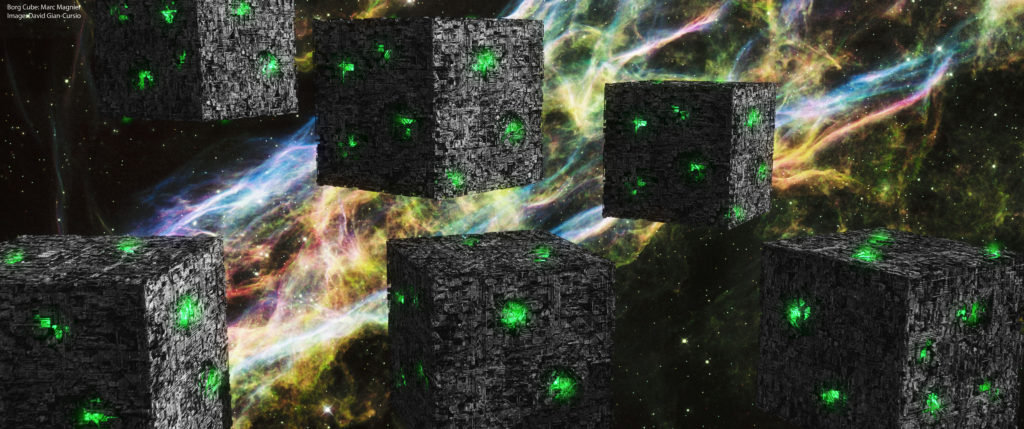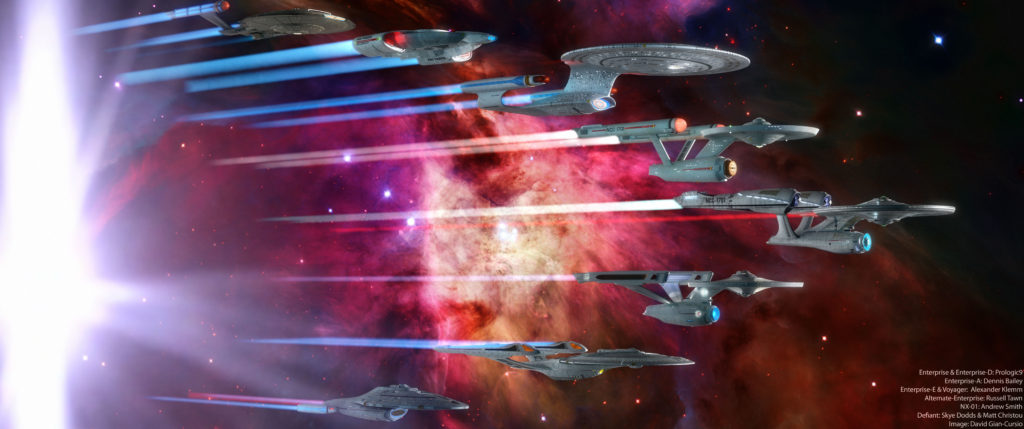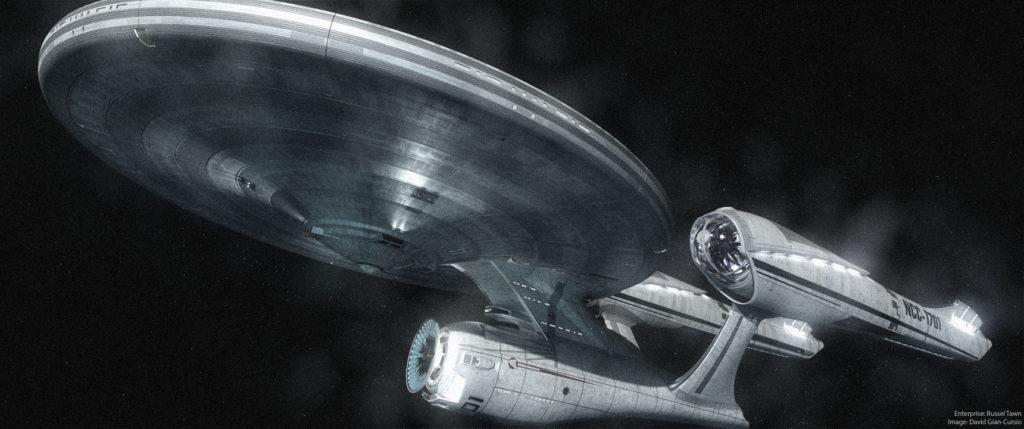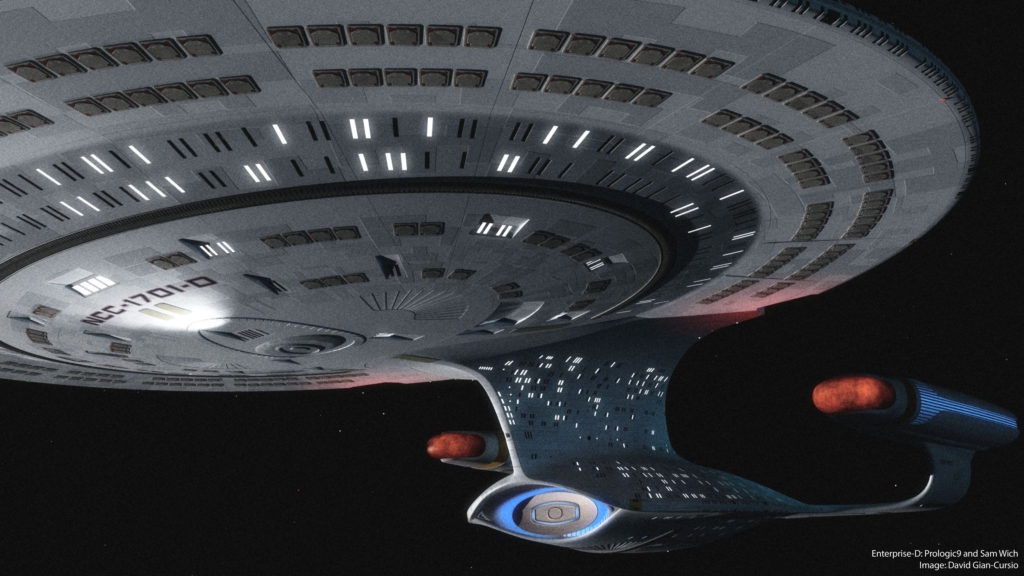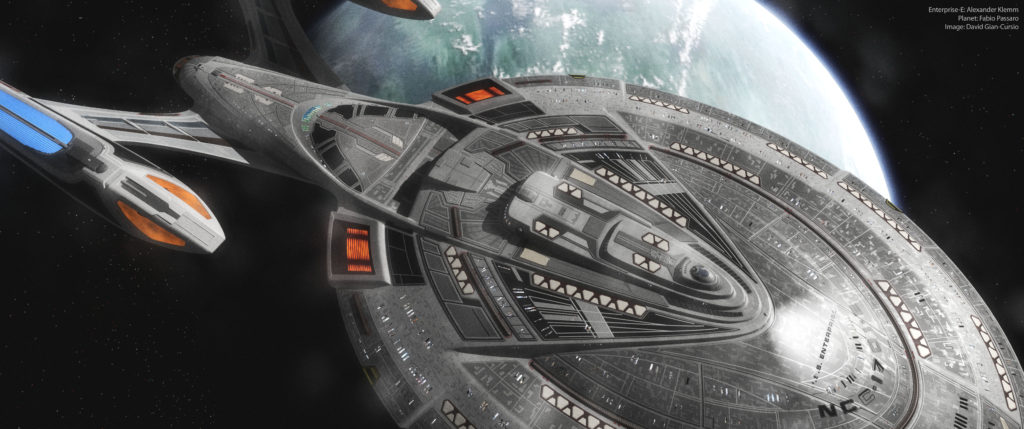An effect I wanted to try out is something called a “split diopter,” which is basically a sort of camera bifocal, for when you want two (or more) subjects at different distances to be in focus.
Category Archives: Star Trek
100 Days, 100 Renders— Day 41
I revisited one of the passes I did for my 50th Anniversary picture to better get to know linear lighting. It mixes and builds differently, so I readjusted all of the intensities of the scene lights (and then further played with the contrast in Photoshop to get some of the drama back). I’m going to have to practice a lot more to get things down. Surface settings also react differently. That’s most apparent on the inboard grill of the warp engine, where you can see the blue glow reflecting from its twin on the other side of the ship.
100 Days, 100 Renders— Day 39
A panicky, last minute render. I ended up recalling a shot from the Star Trek: The Next Generation episode “The Best of Both Worlds.”
I intended to try doing my post work in After Effects rather than Photoshop, but that didn’t work out (apparently, After Effects, 5K frames, and eight-year-old laptops don’t mix).
100 Days, 100 Renders— Day 37
Here’s the image that was going to be yesterday’s render. I ended up having to re-render in the morning when it proved to be too expensive for my usual settings to finish overnight.
It depicts a moment from the “Destiny” novel trilogy, which include a massive Borg attack on the Federation. At this point, a fleet of Cubes has attacked Vulcan, but has briefly been disabled with the same “sleep” command that Picard once used against them. The surviving Starfleet ships quickly move to scuttle the Borg cubes before they wake back up.
One important thing I learned from this image is that Lightwave’s built-in lens flares don’t play nicely with the newer photoreal motion blur (not that surprising, considering how old LW’s flares are). I’d been thinking about making a geometry-based Star Trek torpedo effect anyway, but I’ll have to keep this in mind for shots where flares aren’t easily avoidable.
100 Days, 100 Renders— Day 34
100 Days, 100 Renders— Day 33
There’s a certain ebb and flow to these pictures, I’ve noticed. This one was another “getting acquainted with the model” image. I’m hoping to do a couple pictures representing scenes from the Star Trek novel trilogy “Destiny,” which involves, in part, a massive Borg attack on the Federation. The nebula is a Hubble photo I considered as a possible background for yesterday’s picture.
100 Days, 100 Renders— Day 32
100 Days, 100 Renders— Day 29
With this last test, I’m set for Thursday’s picture. This model is a bit hefty for my poor old laptop, so I didn’t get to do a lot of experimentation with angles and lighting for this shot. I just went for the first idea I had. I tried for too much quality on the render so it wasn’t close to finished this morning, which is why it’s smaller than usual.
100 Days, 100 Renders— Day 28
Another basic test shot. This one has the benefit of not being a conversion, though I did adjust some of the lights and textures. The Enterprise-D is a hard ship to make look good. In my opinion, it’s at its best in shots that emphasize its size (same with the Excelsior). That giant saucer is really hard to work around.
100 Days, 100 Renders— Day 27
This was another glorified test-shot. Converting models built in other programs into the one I use is something I haven’t had to do much since I started using Lightwave, so it was interesting to flex that muscle again. I’m note sure what to do about all the rendering errors on the saucer. I think they might be because Lightwave’s FBX importer, so I may try to redo it in another format as a base. The modeler, Alexander “Nightfever” Klemm, is very conscientious about making his models available in universal formats, which I appreciate. Still, its current condition is serviceable for my 50th anniversary idea, so I’ll move on to working on the other ships I need to have ready to go.
Aside from the glitches, “Generic Enterprise-E Render” turned out fairly well. It does appear that I need a wider library of high-resolution fictional planets, though. Something to keep in mind if I’m bored in the future. I also applied the out-of-focus lens-dirt technique I developed a few days ago, partially hoping I could use it to cover up some of the rendering problems, though when that didn’t work out, I dialed it down it was much more subtle. I also tried out the idea I suggested in that prior post, having several layers of dirt responding to different amounts of blur, though wouldn’t really be visible in a still.

